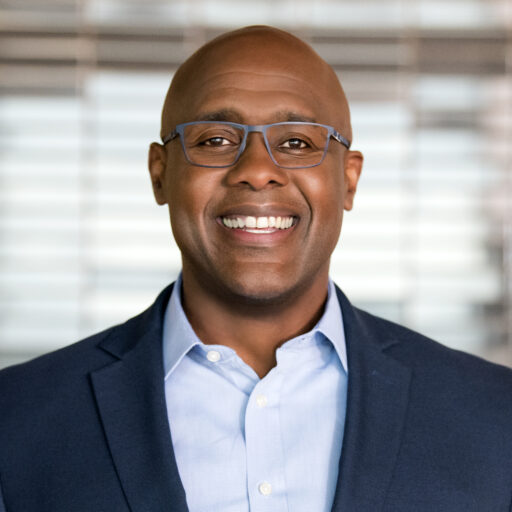Recruiting for diversity without first developing an inclusive culture is the classic scenario of putting the cart before the horse. Without a company-wide understanding of the need for diversity and an inclusive environment where new diverse talent can thrive, that talent is likely to head for the door.
This point is one that Reggie Willis, chief diversity officer at Ally Financial, is quick to acknowledge. Leading diversity, equity, and inclusion efforts at the financial institution for past seven years, he notes that it’s Ally’s foundational commitment and top-down leadership on DEI that’s allowed his team to develop not only a pipeline of diverse candidates but also build meaningful recruitment partnerships with organizations serving underrepresented and upcoming talent.
This commitment is reflected in Ally’s 2022 employee demographics:
- 82% retention rate of women or people of color
- 36% representation of women or people of color on the board of directors
- 50% of executive council are women or people of color
- 26% promotions or career advancements for women or people of color
But Willis notes that it’s important to also consider year-over-year progress, rather than just looking at the numbers associated with diversity recruitment goals. “If you are [only] a metrics-based organization, you’re going to run to that metric and then claim victory once you’ve reached it,” he explains.
Among the company’s long-term annual goals are fostering employee well-being, creating a culture of connection, and using data-based initiatives to promote equitable hiring, Willis says. When it comes to diversity, he explains that the leadership team at Ally views diversity as going beyond demographics to also include differences in abilities and backgrounds. The company is working toward increasing the representation of veterans, HBCU students, and LGBTQ+ talent, to name a few examples.
Senior Executive DEI sat down with Willis to learn more about Ally Financial’s approach to recruitment and building partnerships. Read on for an edited excerpt from that discussion.
Senior Executive Media: What partnerships have you developed for recruiting diverse candidates?
Reggie Willis: From a pipeline perspective, we are really intentional about working with organizations like ALPA, which is the Association of Latino Professionals for America. They’ve got both a student arm and a professional arm. We are heavily involved with their programs for interns, as well as their local chapters where we have a footprint. The main reason is that we have an opportunity with Hispanic and Latino professionals… We are continuing to grow and continuing to want to see greater representation in those areas.
[The Stiegler EdTech’s Career Technology Apprenticeship Cohort (CTAC) is] a technology-based program here locally in Charlotte, where we bring in cohorts of students [who] go through a curriculum. Most of those students are currently underrepresented talent, minority talent… Over the past several years, we’ve had 18 to 20 candidates go through that program [each year]. [To date, 41 graduates from the program have joined Ally as full-time hires.]
We also work with Thurgood Marshall College Fund, which supports all of the public, historically Black colleges and universities. We’ve had a long partnership with them, over 17 years, where we’ve continued to commit and engage with, ensuring that we’ve got the right pipelines of talent.
Senior Executive DEI Think Tank is a criteria-based membership community for chief diversity officers and senior-level DEI leaders at large organizations to share difference-making tactics, trade valuable resources, and seek the counsel of experienced peers in a private, confidential setting.
Do you qualify?Senior Executive Media: Ally partnered with the Thurgood Marshall College Fund to develop the Moguls in the Making program. Can you share how this program has helped to cultivate talent?
Reggie Willis: We’ve been doing the Moguls in the Making program for five years now. So we’ve had 50 students each year — last year, we actually had 60 students. The top three teams that win [a competition in which students pitch entrepreneurial ideas] are offered full scholarships. To date, the program has resulted in 36 interns and 12 full-time hires.
Students come from all different schools and all different majors — not only majors that would lend into careers in finance. Even if an internship or full-time opportunity isn’t a fit, they’re able to receive the scholarship, partake in the networking, and have doors opened to partner organizations.
Senior Executive Media: How does Ally involve its employee resource groups in recruiting partnerships and initiatives?
Reggie Willis: We have eight employee resource groups, and…we have recruiters that are aligned to each of our ERGs just so they can understand, have a deeper appreciation for, what our ERGs offer in the way of inclusion and connectivity and vice versa…Many of those [partners] come from our relationships with our ERGs. They help in our recruiting, they go to career fairs, they engage in the interview process… We try to heavily involve as many components of our culture as possible in the recruiting process.
[Through Ally’s partnership with Hiring Our Heroes] we actually had someone who was transitioning from service to civilian, and he was on the fence as to whether or not he should come. We actually had him come and sit down and speak to one of our ERG members that was ex-military… So not only do we talk about DE&I, we actually let [potential employees] see what it’s like, have that conversation. We are hopefully allowing that level of transparency so people can understand that it’s not just a sales point — it’s who we are authentically and one of the foundational pieces of our culture.
Senior Executive Media: Speaking of culture, how is Ally’s commitment to DEI reflected in the company’s culture?
Reggie Willis: I think for us, it starts at the top of the house. If you ever hear our CEO Jeff Brown, JB, speak about the importance of culture and how much of a role culture plays in the success of an organization, I mean, he actually says, ‘If you get the culture right, everything else falls into the place, and it’s also going to help us service our customers.’
We really started from a foundation of inclusion and creating an environment where people can come in and feel like they had a sense of belonging, felt like their voice would be heard. And that has really enabled us to bring in a very diverse, very innovative group of individuals and talent, both young, early in their career, middle of that career, and very seasoned employees.
You’ve got to understand the value that diversity, equity, and inclusion has on your culture… If the language that you’re trying to use to recruit candidates does not align with your culture, you will be found out pretty quickly… An organization’s recruiting language and interactions with candidates should reflect the organization’s actual or real culture once those candidates become employees. If that recruiting language isn’t reflective of the actual employee experience, there could be a significant disconnect and could impede retention and employee job engagement/satisfaction… You have to make sure that the things that you are selling are true to who you are organically as an organization.
“Don’t think of diversity as a lane… Think about it as a lens that you view all of your work through… When you bring all of those diverse minds together and give them a sense of purpose and connection to the work that they’re doing, you’re going to be much more effective.”
Senior Executive Media: How does your team ensure DEI is baked into the recruitment and hiring process?
Reggie Willis: It’s not just the recruiters that have to have an understanding of what it means to start with diversity as the lens that you’re viewing all of your work under. We speak with our hiring managers regularly… We help them understand, once people come on board, what is the value of understanding your biases related to performance management: What’s the language that you use? How important is that language? How important is it to make sure that, as you are interviewing candidates, that you have diverse interviewers…and not just to have one diverse interviewer, but to have more than one. And similarly with your [candidate] slates, not just to have one diverse candidate.
When we’re speaking to the rest of HR and our managers and people, we tell them: ‘Don’t think of diversity as a lane… Don’t think of it as five people in the organization that are responsible for it. Think about it as a lens that you view all of your work through. And you’ll find that, one, all of us are diverse. Two, that when you bring all of those diverse minds together and give them a sense of purpose and connection to the work that they’re doing, you’re going to be much more effective.’
Senior Executive Media: How do you use data to guide diversity recruitment efforts?
Reggie Willis: As a normal course of practice, my team partners with our HR business partners that work with all of our hiring managers to make sure that we aren’t just taking a kind of a peanut butter approach to everything, but that we understand: What are the needs for that group based on the data? And we allow the data to drive how we approach the hiring process to make sure that we’ve got the diversity that they need or the gaps that they need to fill from that regard.
The example I always give is that people tend to think of race and gender when they think about diversity recruiting. I often tell people, well in HR, we are 78% female. So our diversity is not represented in gender… If anything, we need more men, not more women.
In the past few years, we’ve had an intentional focus on coaching and development programming for high-potential Black and Hispanic/Latino talent, and within that cohort of participants, there was a 44% promotion rate in 2022. So naturally, we’re expanding the program in 2023 to include high-potential talent at more levels within the organization.
So it’s really about: What is the data telling you? How do you then take that approach to solving for the opportunity that you have?
Senior Executive Media: What does accountability look like at Ally?
Reggie Willis: We do, like most organizations, create objectives at the beginning of every year, and each of our leaders and JB our CEO sits down with Kathie Patterson, who’s our chief human resource officer… and they review. How are we doing on a quarterly and annual basis as a part of our talent planning? We look at our diversity metrics; we look at how our representation is moving. How do we think about people being prepared for succession planning? Thinking about, how are we looking for the next leaders in our organization, and do we have a pipeline of candidates that come from different backgrounds?
We have a diversity, equity, and inclusion council that meets six times a year and we talk about, how are we doing versus where we said we thought we would be compared to where we were last year. It’s more of the consistency and the ever-present nature of the work that we’re doing that allows us to hold each other accountable. From a transparency perspective, we share all of our data on our website, so you can see where our representation numbers are. Many times, that in and of itself is accountability enough, because now your employees hold you accountable to what you said you were going to do as well.




